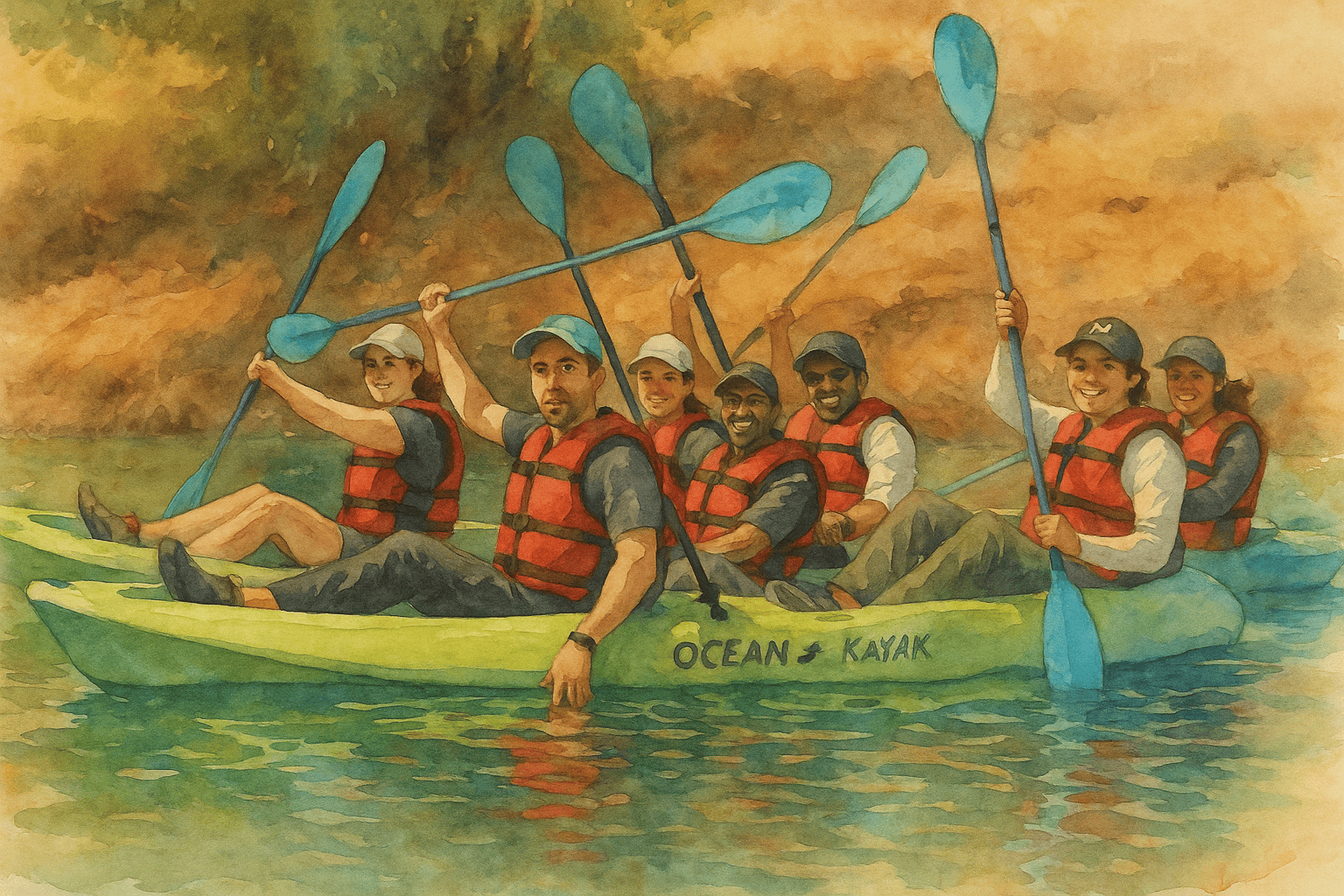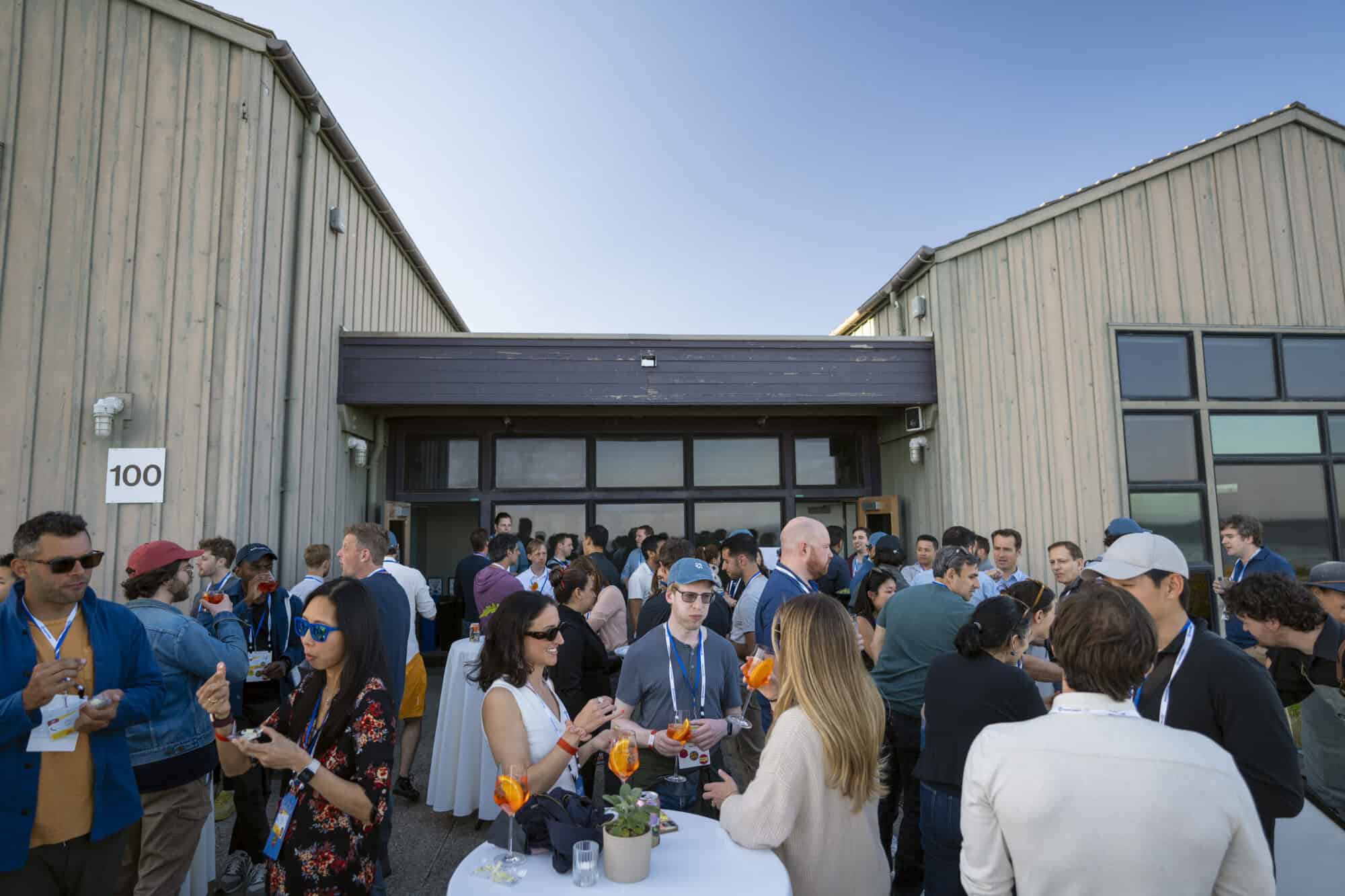


Why Creating Space for Authentic Founder Conversations Matters
This past May, we hosted our annual Founder Retreat. The event brought together portfolio founders in the NextView community from across North America, giving us all a chance to slow down and connect in the beauty of Sonoma County’s Russian River. I’ve been reflecting on how creating space for genuine conversations in small groups at our retreat set a tone that rippled into every other conversation and relationship that followed.
After our annual NextView Founder Retreat officially wrapped on a sunny Friday morning in May, I joined a smaller group of founders for a windy bus ride to kayak on Lake Sonoma. It was hot and stuffy, we were fresh off a late night of karaoke, and I expected everyone to zone out or check their phones. Instead, some of the retreat’s most genuine conversations were happening – everything from brainstorming unexpected use cases for someone’s proprietary dataset and sharing parenting hacks to more intimate discussions about health crises and picking oneself up after major setbacks.
What struck me wasn’t just the range of topics, but who was sharing. None of these founders had been in the same coaching circle during the official retreat, and very few had known one another beforehand. Yet, here they were being completely real with each other about their families, business challenges, and everything in between.
The Founder’s Dilemma
The job of a founder requires always being “on.” Constantly selling to investors for funding and continued confidence, to prospective hires, to employees, and, of course, to customers. Even when discussing challenges, the framing is often in a way that builds confidence in your ability to overcome them.
I don’t share this as criticism – it’s necessary. But it means founders rarely get space to just be human. To admit they’re scared, confused, or dealing with personal stuff that affects their work (or vice versa). To seek a sounding board or advice without worrying about what signal that sends.
Our Approach at NextView
That’s exactly why we structure our annual founder retreat the way we do. Instead of panels featuring brand-name “sages on a stage,” we partner with professional coaches to facilitate small groups of 5-6 founders. These aren’t intensive, day-long therapy sessions; they’re structured time to talk, with the goal of deepening connections among peers who are also navigating the highs and lows of building companies from scratch.
And here’s the crucial part: my partners and I aren’t in the room for any of the coaching. As much as we love our founder community, we recognize that having investors present changes the dynamic. Would you fully let your guard down if the people who fund your business were listening?
We honor the confidentiality of the coach-client relationship. We trust the process and the professionals. We don’t ask the coaches what gets discussed. Each coach has their own style, each group finds its own rhythm. The feedback we get afterwards tells us it’s working – our NPS scores for our annual retreats are consistently high – but more importantly, we see the impact ripple through the entire event and long after it’s over.
The Ripple Effect
Coaching circles set the tone for the entire retreat. There’s a noticeable vibe shift once the circles wrap up and the group comes back together for unconference sessions and hang time. When founders experience what it feels like to be authentic and vulnerable in a small group, they carry that energy into every other interaction.
There’s something magical about hearing that folks who bonded at the retreat self-organized a cadence of check-ins with each other months later. I’ve watched unlikely connections form between people who barely overlapped during the formal sessions but found each other during the unstructured time. The retreat doesn’t just create a moment of authenticity – it fosters a culture of it within our founder community.
The Business Case for Authenticity
I’m not arguing for authenticity just because it feels nice (though it does). When founders can be real with each other about the hard stuff – a co-founder who is struggling, a family situation affecting their focus, a strategic decision keeping them up at night – they gain better insights. They discover they’re not alone in facing seemingly impossible challenges. They build relationships that extend far beyond a single networking event.
This isn’t just touchy-feely stuff. Creating space for founders to just be themselves together – not pitching, not networking, not performing – helps them show up stronger at their companies. An environment where admitting you don’t have all the answers signals wisdom, not weakness.
As investors, we talk about backing exceptional founders. But exceptional founders are still humans. And humans do their best work when they feel supported, understood, and connected to others on similar journeys. As hands-on, conviction-driven investors, sometimes the most valuable thing we can do is create space for that connection to happen… and then get out of the way.
If you’re an early-stage founder who resonates with this approach – high-conviction investors who create space for authenticity while driving toward ambitious goals – we’d love to learn about what you’re building.




